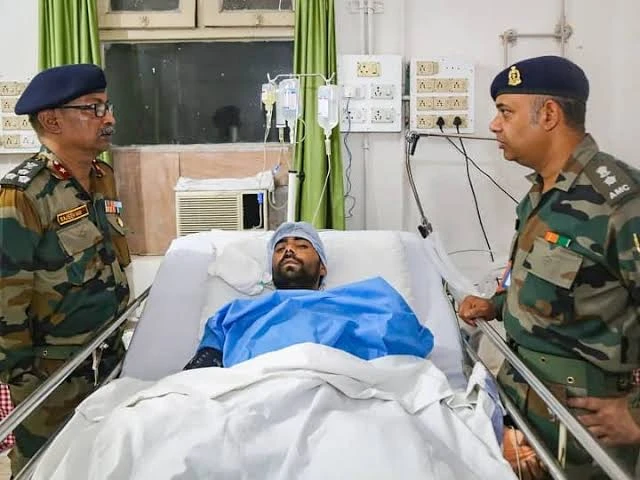Soldiers of the Indian Army donated three bottles of blood to save the life of a Pakistani ‘fidayeen’ (suicide) terrorist who was injured and captured by the Indian troops after having infiltrated the Line of Control in the border district of Rajouri in Jammu Kashmir.
32-year-old Tabarak Hussain, a resident of Sabzkot village in Kotli district of Pakistan-occupied Kashmir (PoK), tried to enter the Indian territory along with his accomplices on August 21.
“I along with four-five others had come here on a suicide mission. We were sent by Pakistan Army’s Colonel Yunus Chaudhry who gave me Rs 30,000 to target the Indian Army. We had recced one-two posts of the Indian Army,” the terrorist told ANI while undergoing treatment at a military hospital.
Hussain confessed to his long association with terrorism and revealed that the terrorists had received specialized training by Major Razzak of the Pakistan Army.
“I was betrayed (by accompanying terrorists) and subsequently captured by the Indian Army. I underwent six-month training and visited several (terrorist) camps (run by the Pakistan army) for Lashkar-e-Taiba (LeT) and Jaish-e-Mohammad (JeM) members,” added Hussain.
The Indian Army said that the captured terrorist was in a critical state and bleeding heavily due to two bullet wounds in his thigh and shoulder.
“Members of our team gave him three bottles of blood, operated him and put him in the ICU. He is stable now but will take a few weeks to improve,” said Brigadier Rajeev Nair, the commandant of the military hospital in Rajouri.
“We never thought of him as a terrorist. We treated him like any other patient to save his life. It is the greatness of Indian Army officials who gave their blood to him even though he had come to bleed them. His blood group was very rare, O negative,” stated the Indian Army officer.
Also Read: Stone pelting and hartals have become history in de-radicalised Kashmir: Manoj Sinha




















